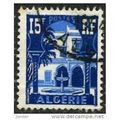Sylt, Germany - North Sea Island from air - postcard c.1970s
- Condition : Used
- Dispatch : 2 Days
- Brand : None
- ID# : 110261400
- Quantity : 1 item
- Views : 317
- Location : United Kingdom

- Seller : justthebook (+1704)
- Barcode : None
- Start : Thu 20 Jun 2013 19:23:59 (EDT)
- Close : Run Until Sold
- Remain : Run Until Sold
Checks/Cheques
 for 1 item(s) edit
for 1 item(s) edit
Shipping Calculator
More Listings from This Seller view all
Seller's Description
- Postcard
- Picture / Image: Sylt, Germany - North Sea Island near Denmark - aerial photo
- Publisher: Schoning & Co., Lubeck
- Postally used: no
- Stamp: n/a
- Postmark(s): n/a
- Sent to: n/a
- Notes / condition:
Please ask if you need any other information and I will do the best I can to answer.
------------------------------------------------
Postage & Packing:
UK (incl. IOM, CI & BFPO): 99p
Europe: £1.60
Rest of world (inc. USA etc): £2.75
No additional charges for more than one postcard. You can buy as many postcards from me as you like and you will just pay the fee above once. (If buying postcards with other things such as books, please contact or wait for invoice before paying).
Payment Methods:
UK - PayPal, Cheque (from UK bank) or postal order
Outside UK: PayPal ONLY (unless otherwise stated) please. NO non-UK currency checks or money orders (sorry).
NOTE: All postcards are sent in brand new stiffened envelopes which I have bought for the task. These are specially made to protect postcards and you may be able to re-use them. In addition there are other costs to sending so the above charge is not just for the stamp!
I will give a full refund if you are not fully satisfied with the postcard.
----------------------------------------------
Text from the free encyclopedia WIKIPEDIA may appear below to give a little background information (internal links may not work) :
*************
Sylt (German pronunciation: ['z?lt]; Danish: Sild; Söl'ring North Frisian: Söl' ) is an island in northern Germany, part of Nordfriesland district, Schleswig-Holstein, and well known for the distinctive shape of its shoreline. It belongs to the North Frisian Islands and is the largest island in North Frisia. The northernmost island of Germany, it is known for its tourist resorts, notably Westerland, Kampen and Wenningstedt-Braderup, as well as for its 40 km long sandy beach. It is frequently covered by the media in connection with its exposed situation in the North Sea and its ongoing loss of land during storm tides. Since 1927, Sylt has been connected to the mainland by the Hindenburgdamm causeway. In latter years, it has been a resort for the German jet set and tourists in search of occasional celebrity sighting.
With 99.14 km², Sylt is the fourth-largest German island and the largest German North Sea island. Sylt is situated at 9 to 16 km off the mainland, being connected there by the Hindenburgdamm. Southeast of Sylt the islands Föhr and Amrum are located, to the north lies the Danish island Rømø. The island of Sylt extends for 38 km in a north-south direction and on its northern peak at Königshafen is only 320 m wide. Its widest distance, from the town of Westerland in the west to the eastern Nössespitze near Morsum, measures 12.6 km. On the western and northwestern shore a 40 km sand beach is located, east of Sylt the Wadden Sea is situated, which belongs to the Schleswig-Holstein Wadden Sea National Park and mostly falls dry during low tide.
The island's shape has constantly shifted over time, a process which is still ongoing today. The northern and southern spits of Sylt are exclusively made up of infertile sand deposits, while the central part with the municipalities of Westerland, Wenningstedt-Braderup and Sylt-Ost consists of a geestland core, which becomes apparent in the form of the Red Cliff of Wenningstedt. The geestland facing the Wadden Sea gradually turns into fertile marshland around Sylt-Ost. Today sources show that Sylt has only been an island since the Grote Mandrenke flood of 1362.[1] The so-called Uwe-Düne (Uwe Dune) is the island's highest elevation with 52.5 m above sea level.
On Sylt a marine climate influenced by the Gulf stream is predominant. With an average of 2 °C, winter months are slightly milder than on the mainland, summer months though with a median of 17 °C are somewhat cooler, despite a longer sunshine period on Sylt. The annual average sunshine period of Sylt is 4.4 hours per day. It is due to the low relief of the shoreline that Sylt had a total of 1899 hours of sunshine in 2005, 180 hours above the German average.[2] Clouds cannot accumulate as quickly and are generally scattered by the constant westerly or northwesterly winds.
The annual mean temperature is 8.5 °C. The annually averaged wind speed measures 6.7 m/s, predominantly from western directions. The annual rainfall amounts to about 650 millimetres.[3] Since 1937 weather data are collected at Deutscher Wetterdienst's northernmost station on a dune near List, which has meanwhile become automated. A number of commercial meteorological services like Meteomedia AG operate stations in List too.
The island in its current form has only existed for about 400 years. Like the mainland geestland, it was formed of moraines from the older ice ages, thus being made up of a till core, which is now apparent in the island's west and centre by the cliff, dunes and beach. This sandy core began to erode as it was exposed to a strong current along the island's steep basement when the sea level rose 8000 years ago. During the process, sediments were accumulated north and south of the island. The west coast, which was originally situated 10 km off today's shore, was thus gradually moved eastward, while at the same time the island began to extend to the north and south. After the ice ages, marshland began to form around this geestland core.
In 1141, Sylt is recorded as an island, yet before the Grote Mandrenke flood it belonged to a landscape cut by tidal creeks and at least during low tide it could be reached on foot.[1] Only since this flood has the creation of a spit from sediments begun to form the current characteristical shape of Sylt. Thereby mainly the northern and southern edges of Sylt were and still are the subject of great change. For example Listland was separated from the rest of the island in the 14th century and from the later 17th century onwards the Königshafen (King's Harbour) began to silt up as the ""elbow"" spit began to form.[4]
In addition to the constant loss of land, the inhabitants during the Little Ice Age were constrained by sand drift. Dunes shifting to the east threatened settlements and arable land and had to be stopped by the planting of marram grass in the 18th century. Consequently though, material breaking off the island was increasingly washed away and the island's extent continued to decrease.
Record of the annual land loss exist since 1870. According to them, Sylt lost an annual 0.4 m of land in the north and 0.7 m in the south from 1870 to 1951. From 1951 to 1984, the rate increased to 0.9 and 1.4 m respectively, while shorelines at the island's very edges at Hörnum and List are even more affected.[5]
Severe storm surges of the last decades have repeatedly endangered Sylt to the point of breaking in two, e.g. Hörnum was temporarily cut off from the island in 1962. Part of the island near Rantum which is only 500m wide is especially threatened.
type=printed postcards
theme=topographical: british
sub-theme=europe
county/ country=germany
number of items=single
period=1945 - present
postage condition=unposted
Listing Information
| Listing Type | Gallery Listing |
| Listing ID# | 110261400 |
| Start Time | Thu 20 Jun 2013 19:23:59 (EDT) |
| Close Time | Run Until Sold |
| Starting Bid | Fixed Price (no bidding) |
| Item Condition | Used |
| Bids | 0 |
| Views | 317 |
| Dispatch Time | 2 Days |
| Quantity | 1 |
| Location | United Kingdom |
| Auto Extend | No |




















